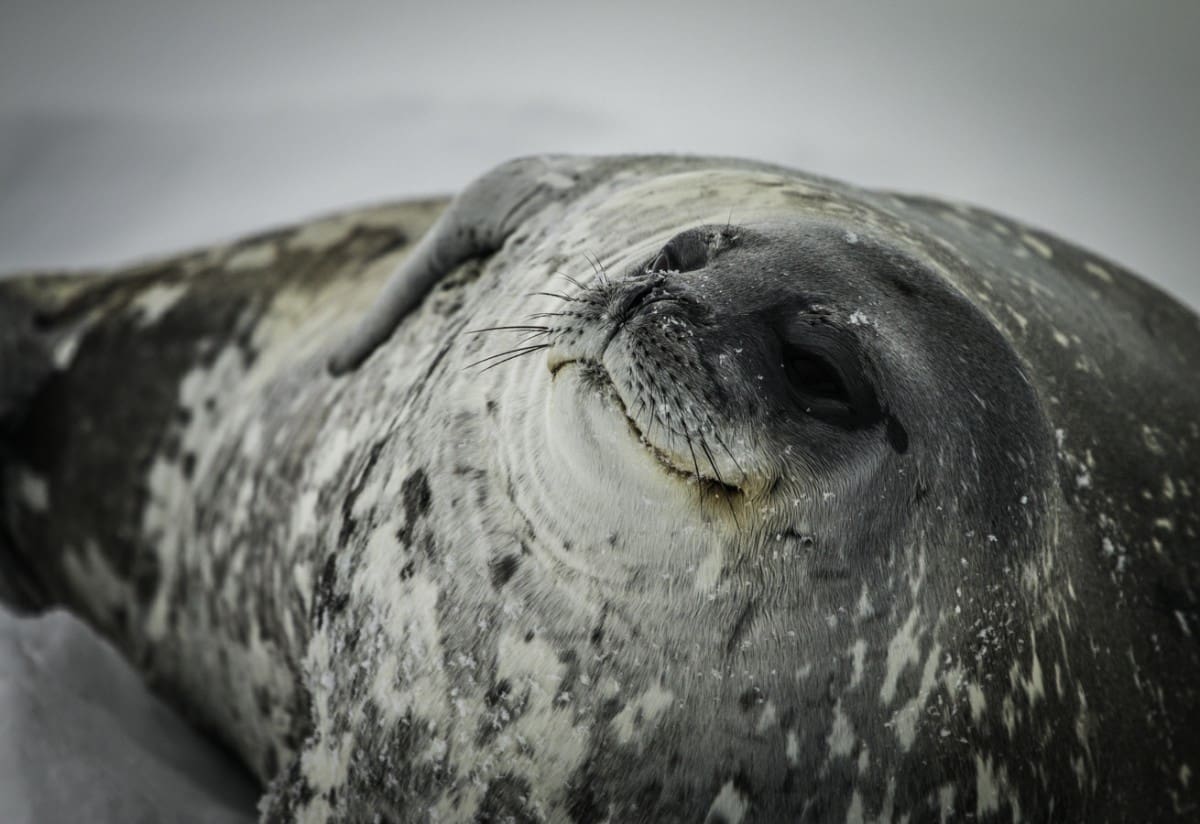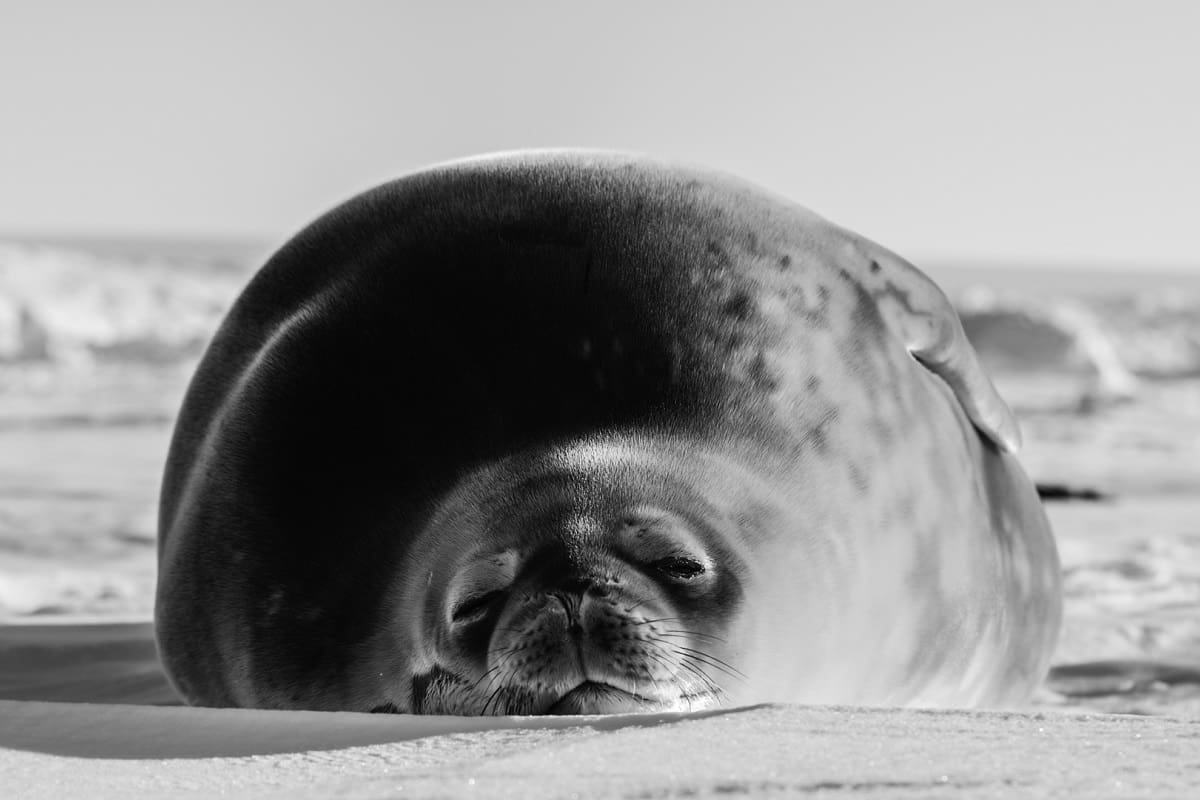
by Ria Olivier | Jan 19, 2022 | Announcement, Jobs, Marion Island, Overwintering Team, Research, SANAP, Science, Stations, Team member
Do you have a BSc (Hons) degree in the ecological field? This might be an opportunity for you!
Two Ecological Field Assistants/Researchers needed for the 2022/2023 overwintering team on the South African, sub-Antarctic Marion Island.
This is an opportunity not the be missed!
Deadline: 21 January 2022.
Always keep an eye on the SANAP Jobs page, where all vacancies on Marion Island, Gough Island and Antarctica are advertised.
Anche Louw, Antarctic Legacy of South Africa, 19 January 2022.

by Ria Olivier | Jan 7, 2022 | Antarctica, Mammology, News, Research, SANAP Student, Science, Southern Ocean, STEM, Women in Science
Congratulations Mia – from overwintering field assistant to lecturer at the University of Pretoria.
Dr Mia Wege was chosen as one of the “100 Women in Polar Science and Support” featured by Women in Polar Science. Mia is a true ‘go-getter’ and an inspiration to all young women in science!
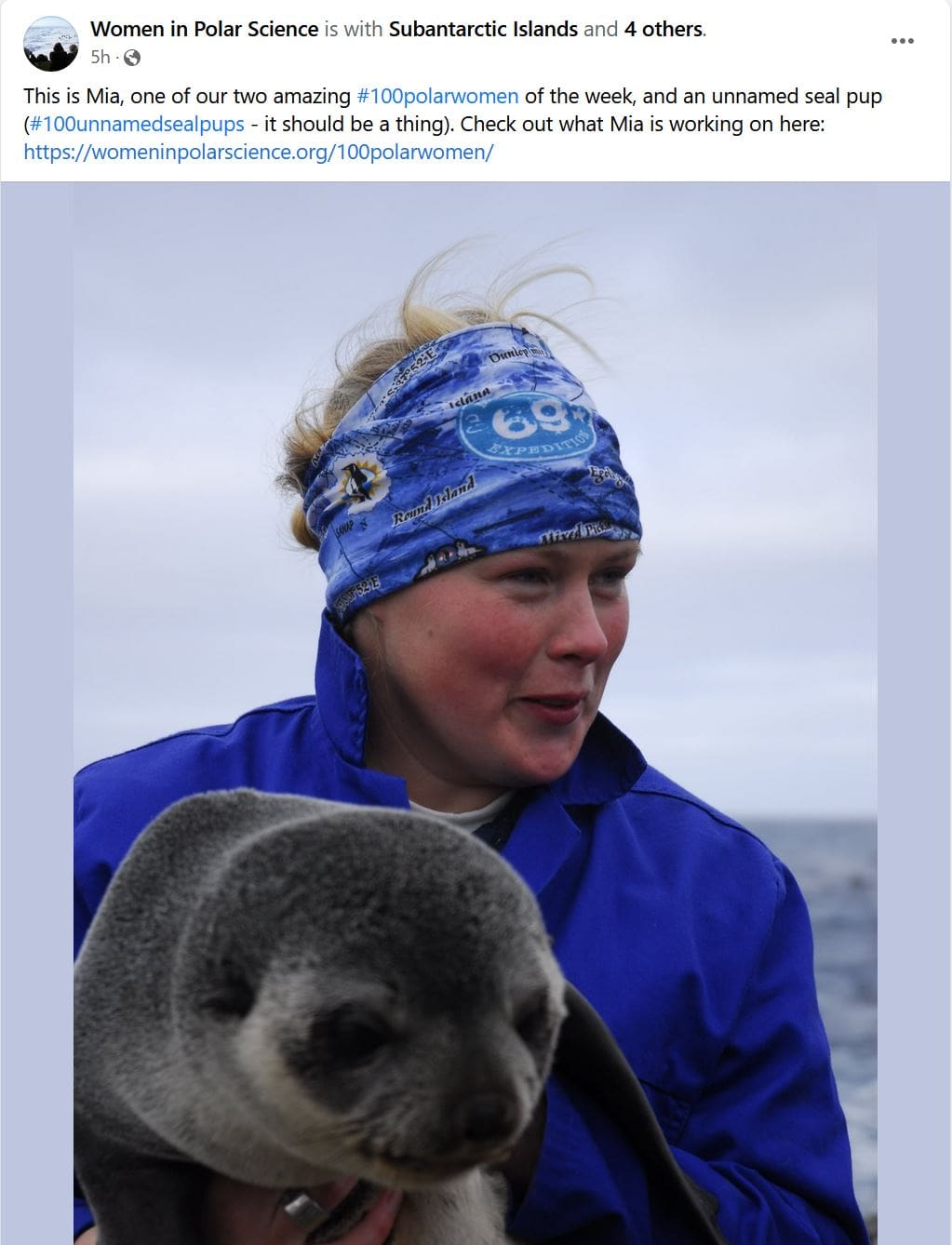
Her connection with SANAP:
In 2009, her journey within the South African National Antarctic Programme started, where she joined the 66th Marion Island Overwintering Team as a “sealer” (Marion Island Marine Mammal Programme) field assistant (see overwintering team photo below). After this expedition, Mia started an MSc at the University of Pretoria, with her project titled: “Maternal foraging behaviour of Subantarctic fur seals from Marion Island”. During her time as MSc student, she applied to return to Marion Island for another year and returned as part of the 69th Marion Island Overwintering team from 2012 to 2013. In the same year of returning from her last overwinter expedition, she completed her MSc and started working on a PhD with her focus on “Population trend and foraging ecology of sympatric Antarctic and Subantarctic fur seals at Marion Island”. She has been on numerous other take-over expeditions to Marion Island, Gough Island, and Antarctica.
Mia completed her PhD, a 3-year Postdoctoral Research Fellow at the University of Pretoria, and another 1-year Postdoctoral Research Fellow at the University of Canterbury. She was recently employed as a lecturer at the University of Pretoria, Department of Zoology & Entomology.
We would like to congratulate Dr Mia Wege on all her qualifications obtained within the South African National Antarctic Programme and her new position as lecturer.
Her passion for the Antarctic is contagious and we encourage all ECR’s (Early Career Researchers) to work hard work and persevere.
Check out Mia’s website here.
Anche Louw, Antarctic Legacy of South Africa, 07 January 2022.

by Ria Olivier | Dec 24, 2021 | Antarctica, News, Research, SA Agulhas II, SANAE, Southern Ocean
 ALSA would like to wish all onboard the research and supply vessel, the S.A. Agulhas II, currently at the Antarctic ice shelf, a happy festive season.
ALSA would like to wish all onboard the research and supply vessel, the S.A. Agulhas II, currently at the Antarctic ice shelf, a happy festive season.
Special thoughts go out to the Captain of the vessel, Captain Knowledge Bengu, and the crew who will be having all hands on deck throughout the festive season. Thank you for supporting all the research activities etc. onboard.
A special message to the AMSOLITES (Captain and Crew) from AMSOL:

Anche Louw, Antarctic Legacy of South Africa, 24 December 2021.

by Ria Olivier | Dec 22, 2021 | Legacy, News, Oceanography, Research, SA Agulhas II, Science, Southern Ocean
Congratulations to all SANAP graduates of 2021. A special congratulations to Dr Mhlangabezi Mdutyana, who just made history by being the first black South African to graduate with a doctorate in observational ocean biogeochemistry.
He is part of the Parallel cycling of nitrogen and iron in the upper Southern Ocean: implications for biological CO2 drawdown and global ocean fertility project led by Principal Investigator, Dr Sarah Fawcett (Department of Oceanography, University of Cape Town).
Read Dr Mdutyana’s inspirational story here. Dr Mdutyana was interviewed by various news channels, see below. Dr Mdutyana is a true inspiration to the future generation of scientists in South Africa.
Anche Louw, Antarctic Legacy of South Africa, 22 December 2021.

by Ria Olivier | Sep 30, 2021 | Antarctica, Data Management, Gough Island, Marion Island, Not-Assigned, Prince Edward Islands, Research, SA Agulhas II, SA Polar Infratsructure, SANAP, Science, Southern Ocean
 South African Polar Research Infrastructure (SAPRI): Launch of the Preparatory Phase
South African Polar Research Infrastructure (SAPRI): Launch of the Preparatory Phase

 The SAPRI team is pleased to inform you that the contractual agreement for the starting of the SAPRI implementation phase is being finalized between the Department of Science and Innovation (DSI) and National Research Foundation of South Africa (NRF). We have now entered the Preparatory Phase of SAPRI’s operationalisation and interim measures are being put in place to ensure progress is made. Until the formal signature of the contract, the SAPRI cannot officially initiate Phase 1, but in the interim the Preparatory Phase will continue the conceptual design of the RI and predispose priority actions with the support of the community.
The SAPRI team is pleased to inform you that the contractual agreement for the starting of the SAPRI implementation phase is being finalized between the Department of Science and Innovation (DSI) and National Research Foundation of South Africa (NRF). We have now entered the Preparatory Phase of SAPRI’s operationalisation and interim measures are being put in place to ensure progress is made. Until the formal signature of the contract, the SAPRI cannot officially initiate Phase 1, but in the interim the Preparatory Phase will continue the conceptual design of the RI and predispose priority actions with the support of the community.

 These achievements would not have been possible without the trust demonstrated by the scientific SANAP community towards the SAPRI team, the contribution and constructive support of the DFFE Oceans & Coasts Branch managing the SANAP logistics, and the commitment to collaborate offered by other institutions that have historically been involved in polar research. This gestation and birth of SAPRI is a major advancement to streamline, consolidate and grow the South African polar sciences, and represent a systemic innovation to maximize the investments of the various governmental institutions involved. The SAPRI will officially start from the advantageous position of being incubated within South African Environmental Observation Network (SAEON), which will fast-track the establishment of the governance and of the consortium agreements.
These achievements would not have been possible without the trust demonstrated by the scientific SANAP community towards the SAPRI team, the contribution and constructive support of the DFFE Oceans & Coasts Branch managing the SANAP logistics, and the commitment to collaborate offered by other institutions that have historically been involved in polar research. This gestation and birth of SAPRI is a major advancement to streamline, consolidate and grow the South African polar sciences, and represent a systemic innovation to maximize the investments of the various governmental institutions involved. The SAPRI will officially start from the advantageous position of being incubated within South African Environmental Observation Network (SAEON), which will fast-track the establishment of the governance and of the consortium agreements.
 The launch of the SAPRI Preparatory Phase was announced via a webinar and a Q&A session to illustrate the main aspects of SAPRI, its organization into integrated facilities, and the first steps of the implementation phase listed in the business plan. To accelerate the implementation phase, it is proposed to initiate an informal Preparatory Phase of SAPRI and to discuss the following actions with the community of stakeholders:
The launch of the SAPRI Preparatory Phase was announced via a webinar and a Q&A session to illustrate the main aspects of SAPRI, its organization into integrated facilities, and the first steps of the implementation phase listed in the business plan. To accelerate the implementation phase, it is proposed to initiate an informal Preparatory Phase of SAPRI and to discuss the following actions with the community of stakeholders:
- Establishment of the User Fora overseeing the requirements of the integrated facilities.
- Implementation of the Task Team for the reorganization of SANAP within the NRF.
- Consultation and discussion on the implementation steps for the Polar Science Transformation Plan.
- Establishment of the DFFE-SAPRI Task Team for assisting with science-related logistics. This will include discussions around the SA Agulhas II dry dock scheduled for November 2021.
 The virtual webinar took place on 29th September 13:00-15:00 and was led by the SAPRI team; Tamaryn Morris, Marcello Vichi, Juliet Hermes, Johannes Pauw.
The virtual webinar took place on 29th September 13:00-15:00 and was led by the SAPRI team; Tamaryn Morris, Marcello Vichi, Juliet Hermes, Johannes Pauw.
- Overview of SAPRI
- Current status, Business Plan priorities, budget requirements and transformation actions
- Q&A
- Preparatory phase
The following links are available to the Antarctic Legacy of South Africa Archive of the webinar recordings and presentations of the South African Polar Research Infrastructure (SAPRI): launch of the Preparatory Phase:
IMPORTANT documents related to and to be read together with SAPRI proposal available on ALSA archive:

by Ria Olivier | Sep 10, 2021 | Mammology, Research, SANAP, Uncategorised
Ross seal ecology, behaviour and physiology in a changing environment

 SANAP research project by Prof Trevor Mcintyre in die Department of Life and Consumer Sciences at University of South Afrcia as principal investigator and Dr Mia Wege , Co-Invesitigator from Department of Zoology and Entomology at University of Pretoria.
SANAP research project by Prof Trevor Mcintyre in die Department of Life and Consumer Sciences at University of South Afrcia as principal investigator and Dr Mia Wege , Co-Invesitigator from Department of Zoology and Entomology at University of Pretoria.
 Antarctica and the surrounding Southern Ocean marine ecosystems are changing rapidly due to anthropogenic climate change. Seals, whales and seabirds, i.e. top-predators, are abundant and conspicuous components of the Southern Ocean ecosystem. Far-ranging and numerous consumers, they connect food webs and are influenced by the distribution of their prey. Labelled as sentinels of change, they are well-studied in comparison to other Antarctic and Southern Ocean taxa. (Image above: Ross Seal. Credit: Mia Wege)
Antarctica and the surrounding Southern Ocean marine ecosystems are changing rapidly due to anthropogenic climate change. Seals, whales and seabirds, i.e. top-predators, are abundant and conspicuous components of the Southern Ocean ecosystem. Far-ranging and numerous consumers, they connect food webs and are influenced by the distribution of their prey. Labelled as sentinels of change, they are well-studied in comparison to other Antarctic and Southern Ocean taxa. (Image above: Ross Seal. Credit: Mia Wege)
 Ross seals (Ommatophoca rossii), the least-studied of all the Antarctic pinnipeds, are unique in their foraging behaviour. Unlike other Antarctic marine predators, they travel north and away from the Antarctic continent. In summer, they hunt for prey in the open ocean, while in winter they spent the majority of their time within the Marginal Ice Zone (MIZ), tracking the seasonal ice edge as it grows within winter. This unique behaviour raises several questions and opportunities to study the impacts of climate change on their ocean habitat. (Image above: Ross Seal Credit: Mia Wege)
Ross seals (Ommatophoca rossii), the least-studied of all the Antarctic pinnipeds, are unique in their foraging behaviour. Unlike other Antarctic marine predators, they travel north and away from the Antarctic continent. In summer, they hunt for prey in the open ocean, while in winter they spent the majority of their time within the Marginal Ice Zone (MIZ), tracking the seasonal ice edge as it grows within winter. This unique behaviour raises several questions and opportunities to study the impacts of climate change on their ocean habitat. (Image above: Ross Seal Credit: Mia Wege)
 This project aims to create an integrative view of Ross seals focusing on foraging ecology, physiology, and interactions with the MIZ. Fine-scale dive recorders will measure how Ross seals adapt their behaviour within the water column in response to environmental change. Novel physiological data collected on their aerobic dive limit and oxygen storage capabilities will determine whether this species is operating at, or close to, its maximum physiological capacity and therefore less capable of compensating for natural or anthropogenic changes in the environment.
This project aims to create an integrative view of Ross seals focusing on foraging ecology, physiology, and interactions with the MIZ. Fine-scale dive recorders will measure how Ross seals adapt their behaviour within the water column in response to environmental change. Novel physiological data collected on their aerobic dive limit and oxygen storage capabilities will determine whether this species is operating at, or close to, its maximum physiological capacity and therefore less capable of compensating for natural or anthropogenic changes in the environment.
 A time-series created for compound-specific isotope analyses of amino acids using whisker segments will be able discern how specialised these predators are in their diet in relation to changes in a shifting isotopic baseline.Combining these three facets will determine the level of behavioural plasticity in Ross seals and their ability to cope with a changing environment.
A time-series created for compound-specific isotope analyses of amino acids using whisker segments will be able discern how specialised these predators are in their diet in relation to changes in a shifting isotopic baseline.Combining these three facets will determine the level of behavioural plasticity in Ross seals and their ability to cope with a changing environment.

 Above: (Left) Trevor McIntyre (Right) Mia Wege
Above: (Left) Trevor McIntyre (Right) Mia Wege
Read article by Mia Wege et al: “Distribution and Habitat Suitability of Ross Seals in a Warming Ocean”
To indulge in a few more images of of seals. Credit: Mia Wege

 Crabeater seals
Crabeater seals


Weddell Seals
Text and images supllied by Trevor McIntyre and Mia Wege.
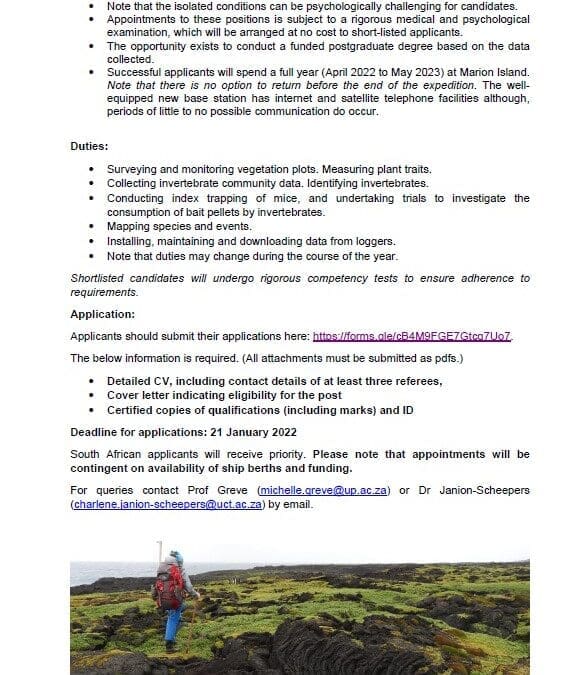

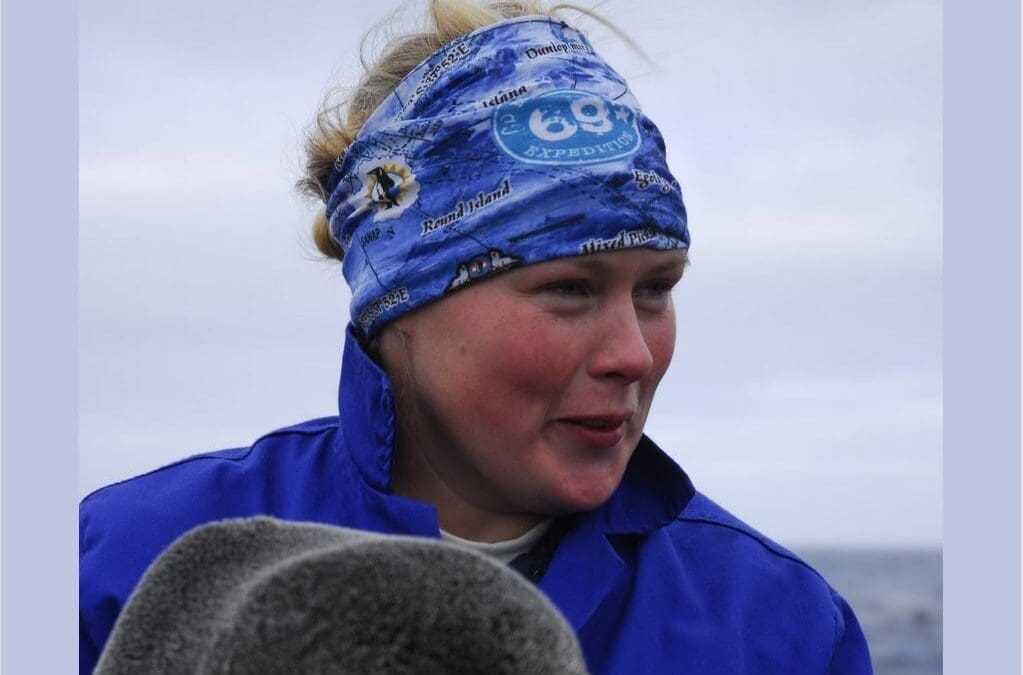


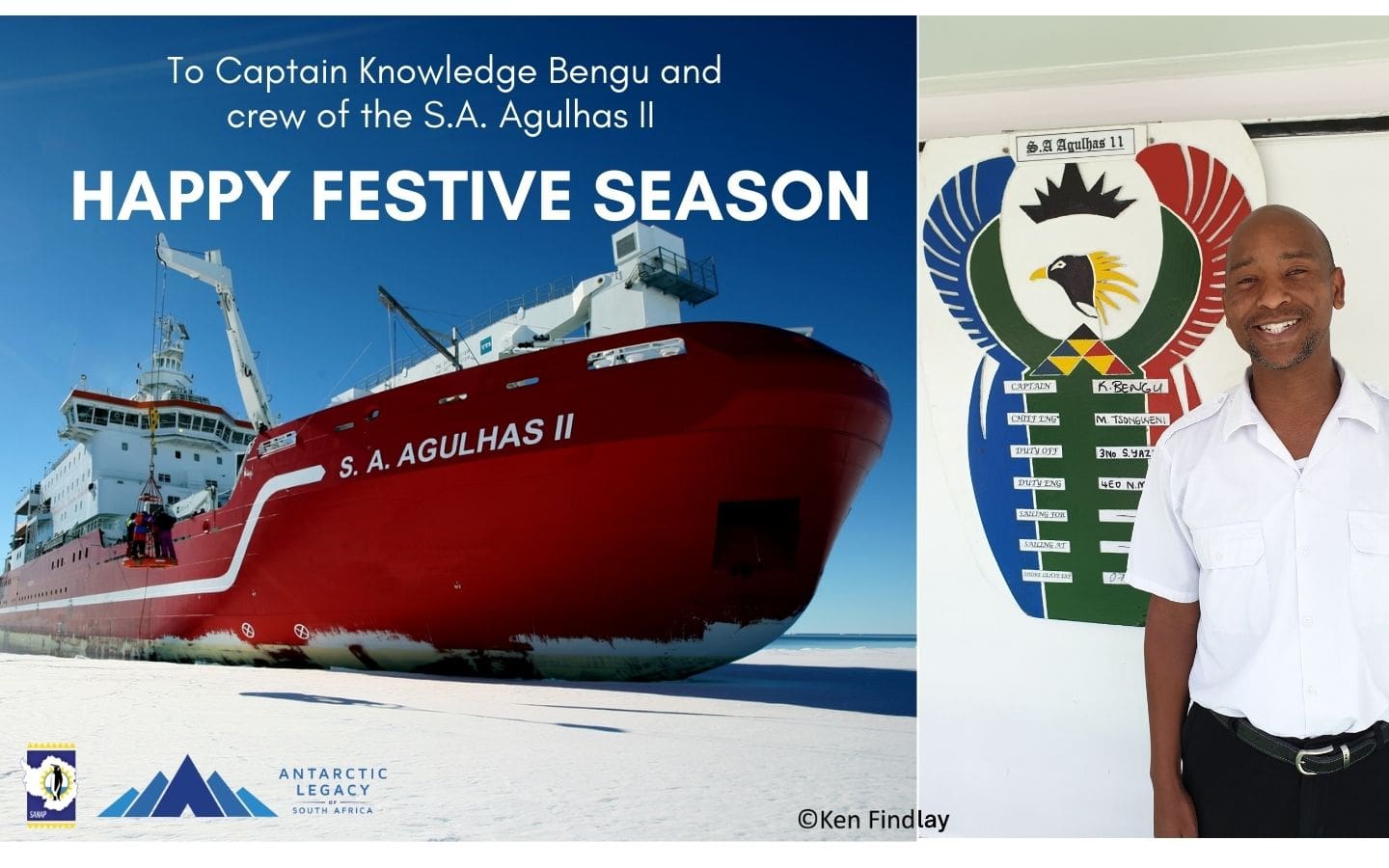 ALSA would like to wish all onboard the research and supply vessel, the S.A. Agulhas II, currently at the Antarctic ice shelf, a happy festive season.
ALSA would like to wish all onboard the research and supply vessel, the S.A. Agulhas II, currently at the Antarctic ice shelf, a happy festive season.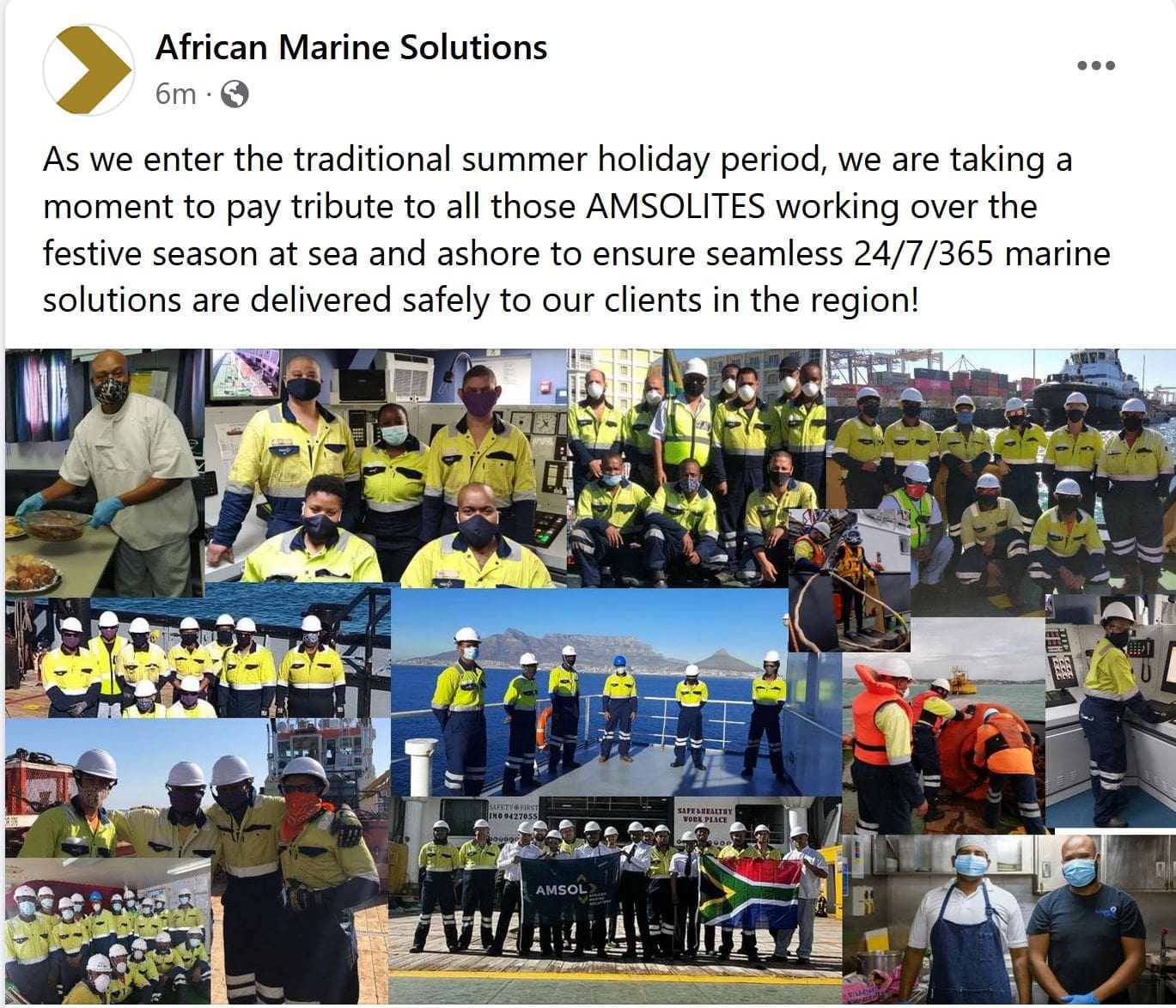
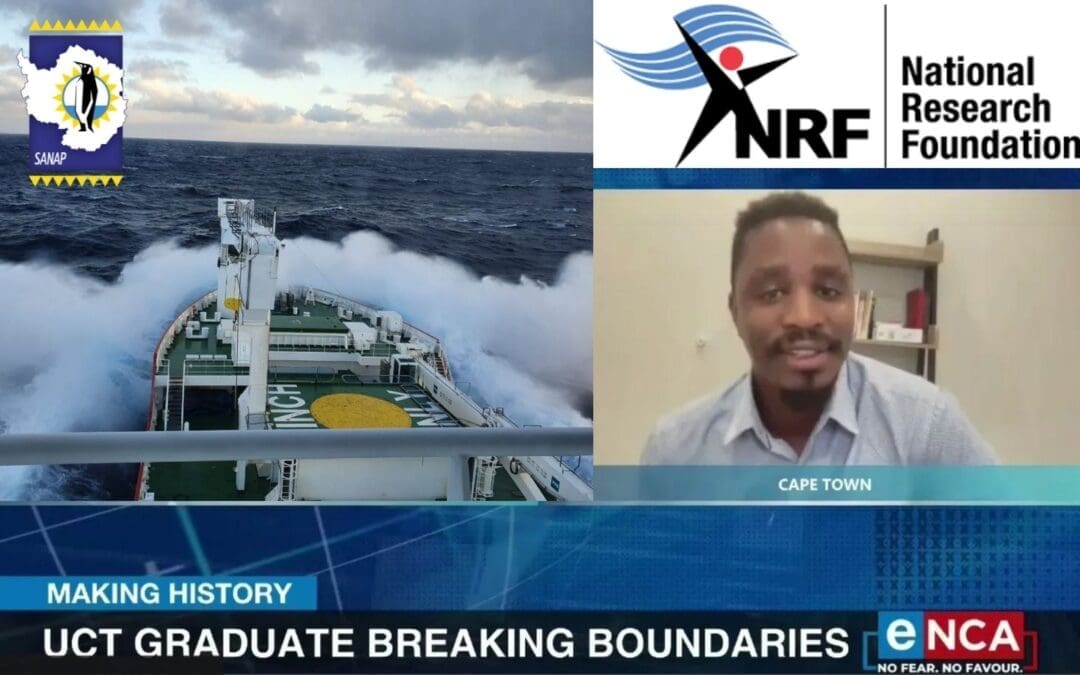
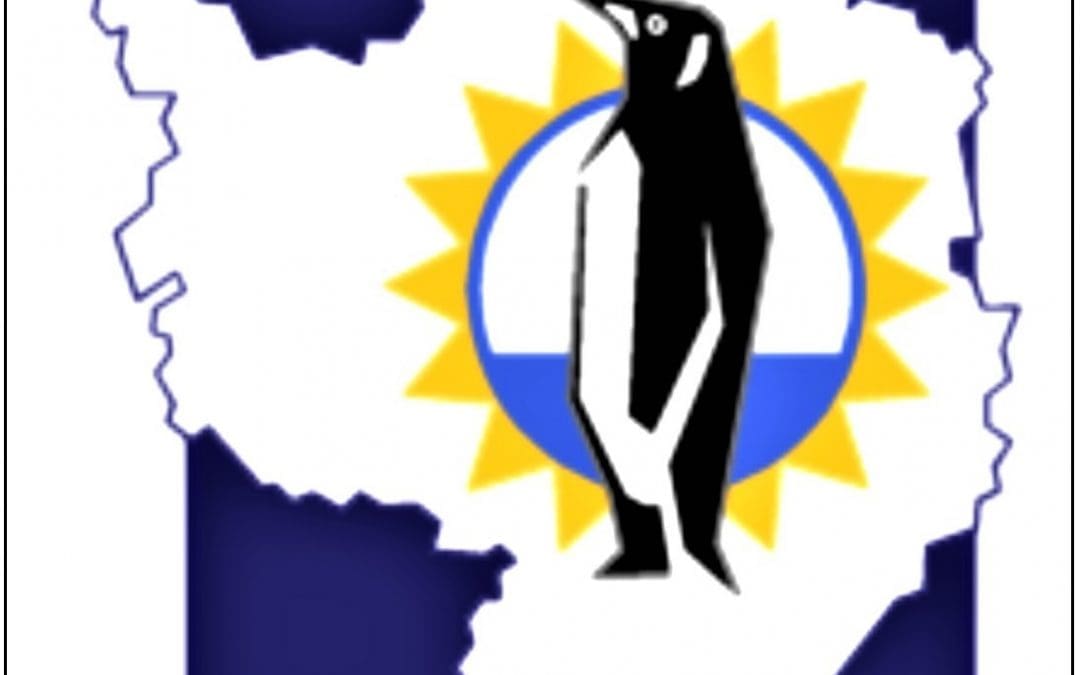
 South African Polar Research Infrastructure (SAPRI): Launch of the Preparatory Phase
South African Polar Research Infrastructure (SAPRI): Launch of the Preparatory Phase
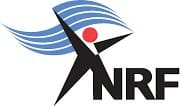 The SAPRI team is pleased to inform you that the contractual agreement for the starting of the SAPRI implementation phase is being finalized between the
The SAPRI team is pleased to inform you that the contractual agreement for the starting of the SAPRI implementation phase is being finalized between the 
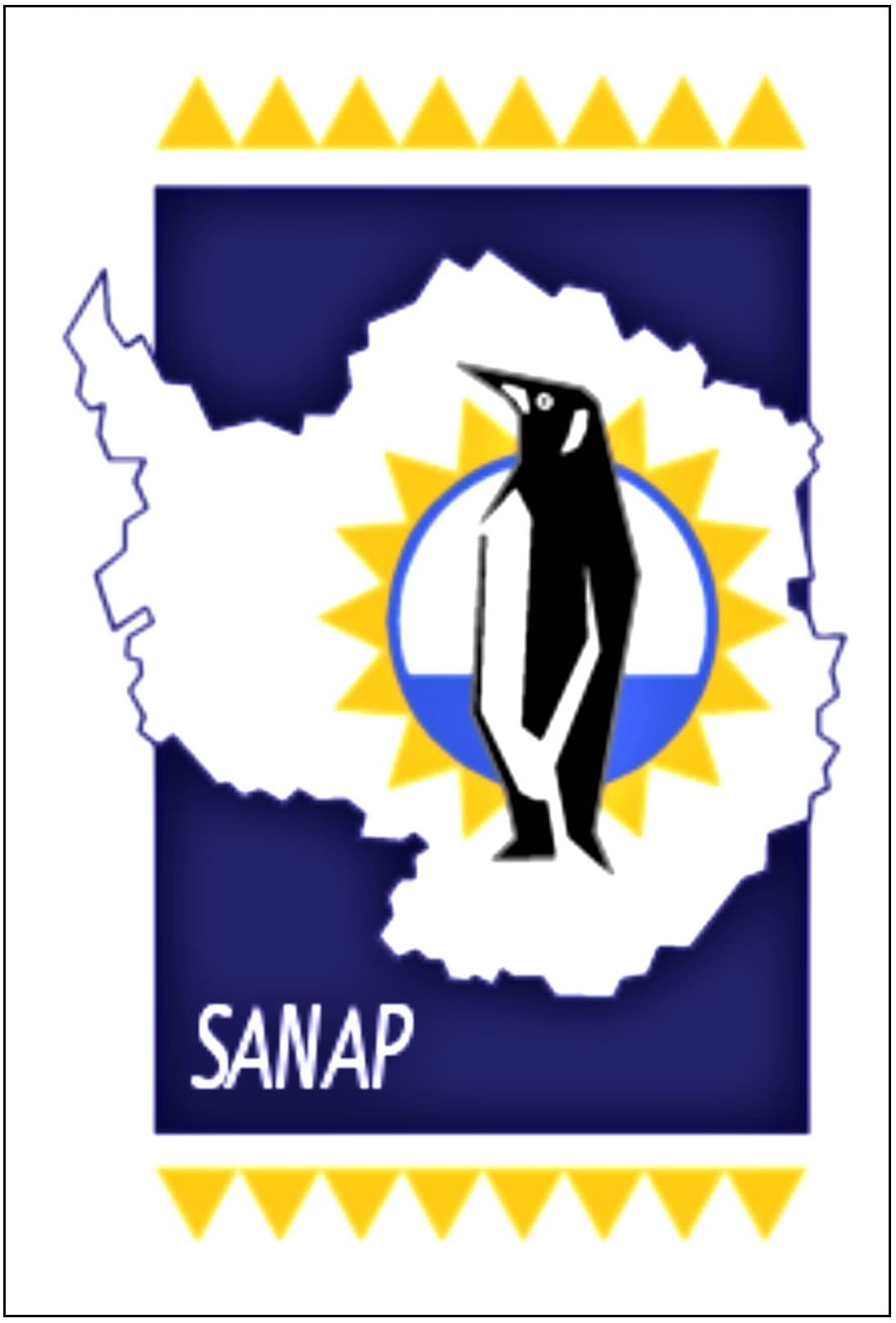 These achievements would not have been possible without the trust demonstrated by the scientific
These achievements would not have been possible without the trust demonstrated by the scientific 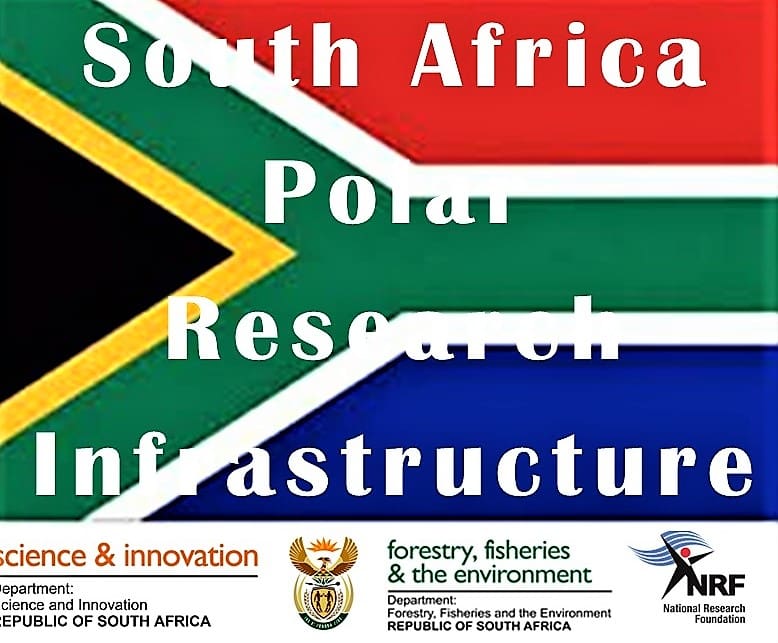 The launch of the SAPRI Preparatory Phase was announced via a webinar and a Q&A session to illustrate the main aspects of SAPRI, its organization into integrated facilities, and the first steps of the implementation phase listed in the business plan. To accelerate the implementation phase, it is proposed to initiate an informal Preparatory Phase of SAPRI and to discuss the following actions with the community of stakeholders:
The launch of the SAPRI Preparatory Phase was announced via a webinar and a Q&A session to illustrate the main aspects of SAPRI, its organization into integrated facilities, and the first steps of the implementation phase listed in the business plan. To accelerate the implementation phase, it is proposed to initiate an informal Preparatory Phase of SAPRI and to discuss the following actions with the community of stakeholders: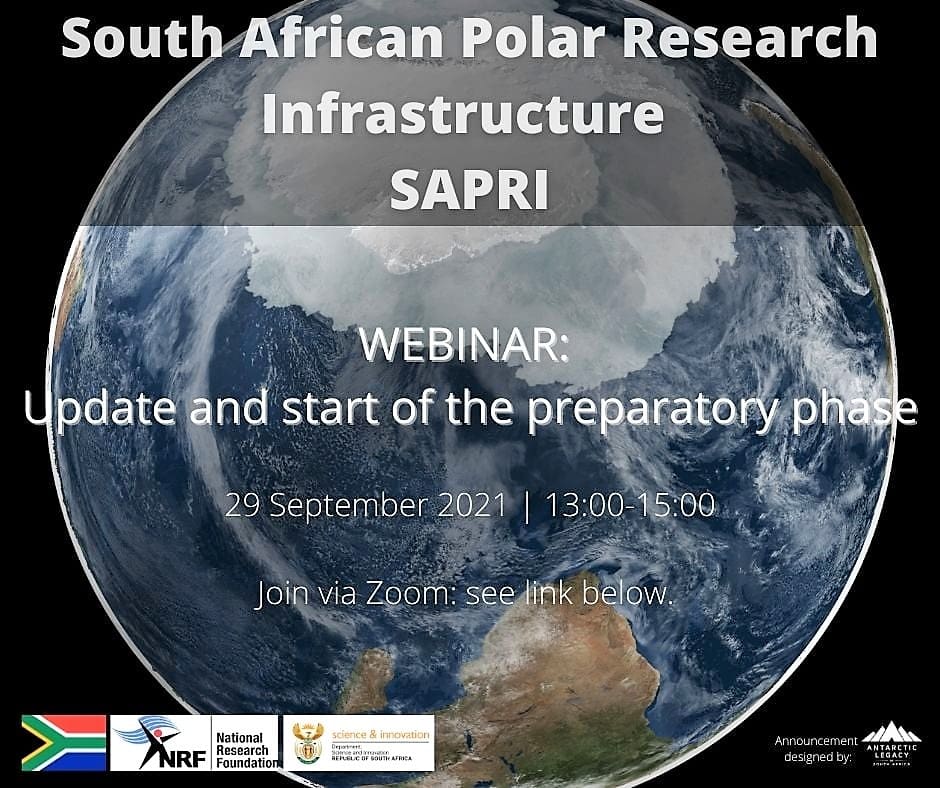 The virtual webinar took place on 29th September 13:00-15:00 and was led by the SAPRI team; Tamaryn Morris, Marcello Vichi, Juliet Hermes, Johannes Pauw.
The virtual webinar took place on 29th September 13:00-15:00 and was led by the SAPRI team; Tamaryn Morris, Marcello Vichi, Juliet Hermes, Johannes Pauw.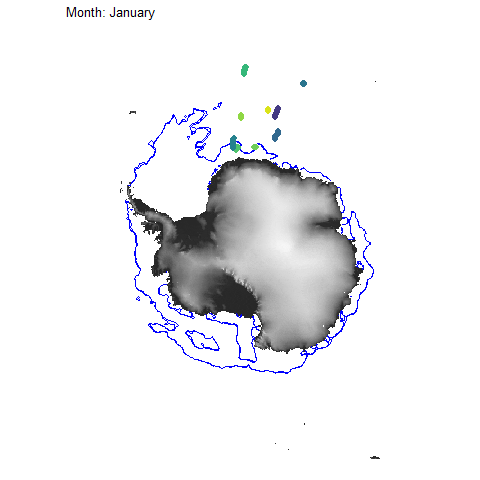
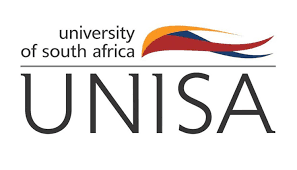

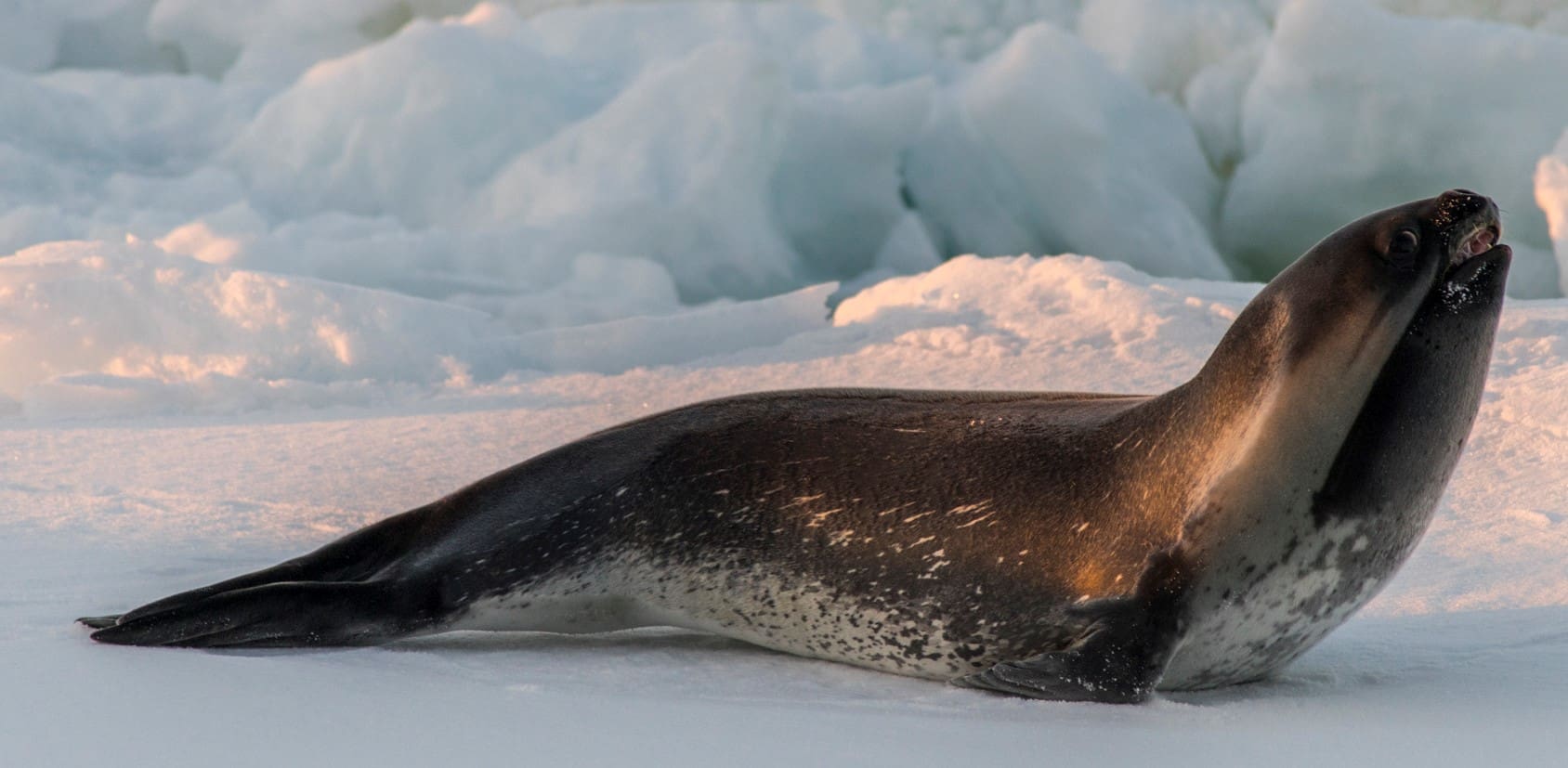 Antarctica and the surrounding Southern Ocean marine ecosystems are changing rapidly due to anthropogenic climate change. Seals, whales and seabirds, i.e. top-predators, are abundant and conspicuous components of the Southern Ocean ecosystem. Far-ranging and numerous consumers, they connect food webs and are influenced by the distribution of their prey. Labelled as sentinels of change, they are well-studied in comparison to other Antarctic and Southern Ocean taxa. (Image above: Ross Seal. Credit: Mia Wege)
Antarctica and the surrounding Southern Ocean marine ecosystems are changing rapidly due to anthropogenic climate change. Seals, whales and seabirds, i.e. top-predators, are abundant and conspicuous components of the Southern Ocean ecosystem. Far-ranging and numerous consumers, they connect food webs and are influenced by the distribution of their prey. Labelled as sentinels of change, they are well-studied in comparison to other Antarctic and Southern Ocean taxa. (Image above: Ross Seal. Credit: Mia Wege) Ross seals (Ommatophoca rossii), the least-studied of all the Antarctic pinnipeds, are unique in their foraging behaviour. Unlike other Antarctic marine predators, they travel north and away from the Antarctic continent. In summer, they hunt for prey in the open ocean, while in winter they spent the majority of their time within the Marginal Ice Zone (MIZ), tracking the seasonal ice edge as it grows within winter. This unique behaviour raises several questions and opportunities to study the impacts of climate change on their ocean habitat. (Image above: Ross Seal Credit: Mia Wege)
Ross seals (Ommatophoca rossii), the least-studied of all the Antarctic pinnipeds, are unique in their foraging behaviour. Unlike other Antarctic marine predators, they travel north and away from the Antarctic continent. In summer, they hunt for prey in the open ocean, while in winter they spent the majority of their time within the Marginal Ice Zone (MIZ), tracking the seasonal ice edge as it grows within winter. This unique behaviour raises several questions and opportunities to study the impacts of climate change on their ocean habitat. (Image above: Ross Seal Credit: Mia Wege)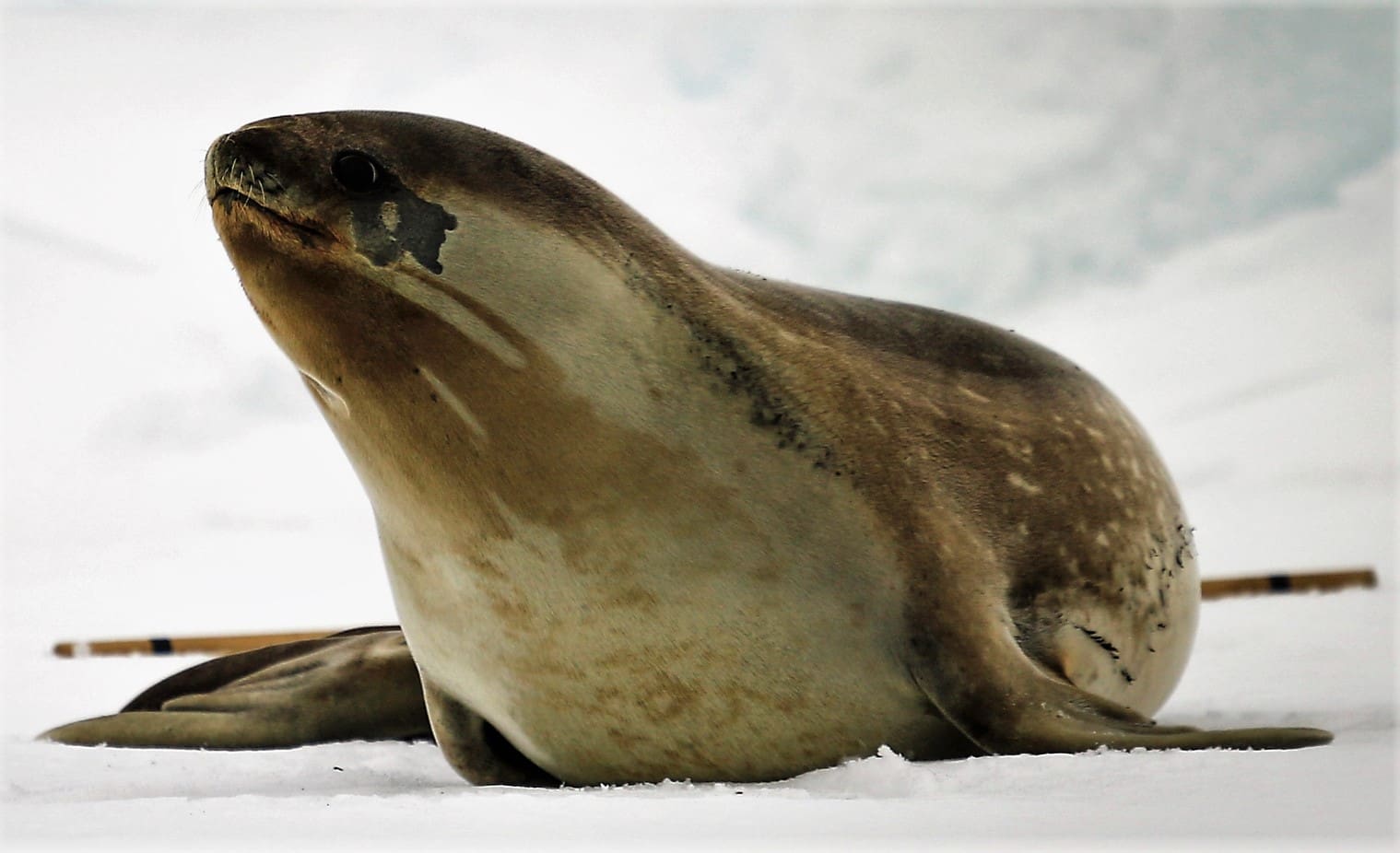 A time-series created for compound-specific isotope analyses of amino acids using whisker segments will be able discern how specialised these predators are in their diet in relation to changes in a shifting isotopic baseline.Combining these three facets will determine the level of behavioural plasticity in Ross seals and their ability to cope with a changing environment.
A time-series created for compound-specific isotope analyses of amino acids using whisker segments will be able discern how specialised these predators are in their diet in relation to changes in a shifting isotopic baseline.Combining these three facets will determine the level of behavioural plasticity in Ross seals and their ability to cope with a changing environment.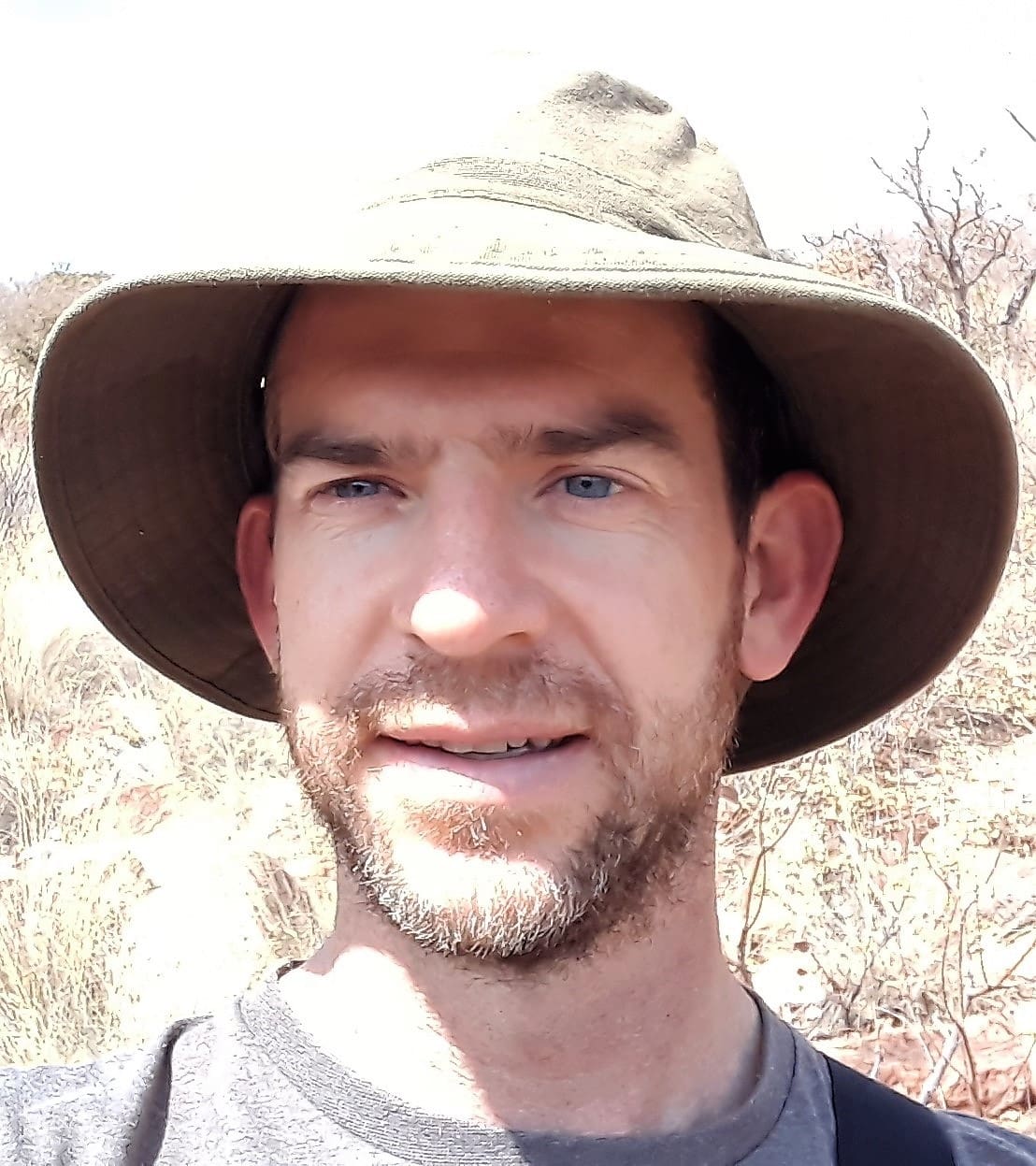
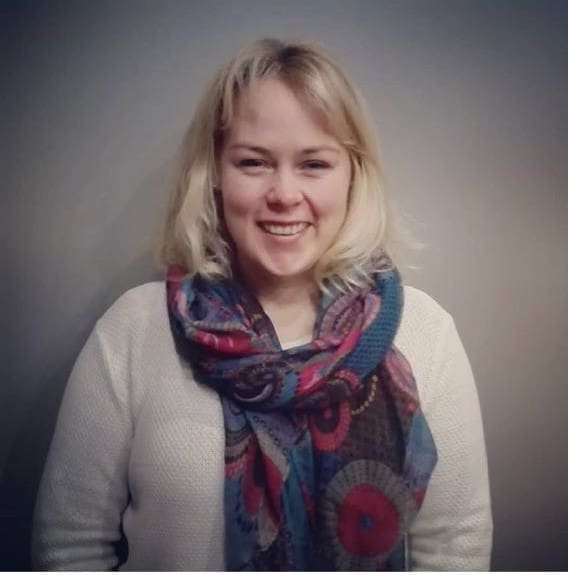 Above: (Left)
Above: (Left) 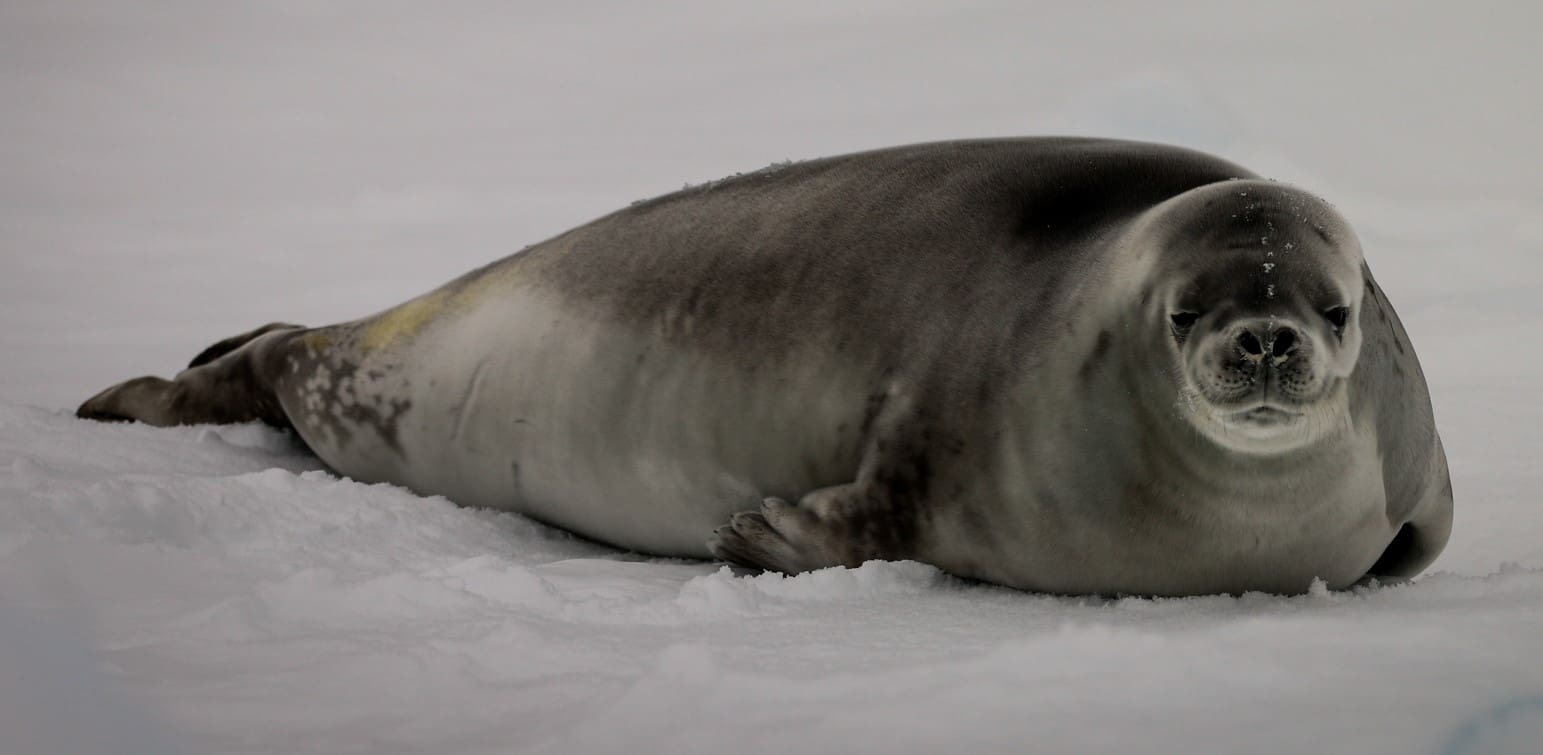
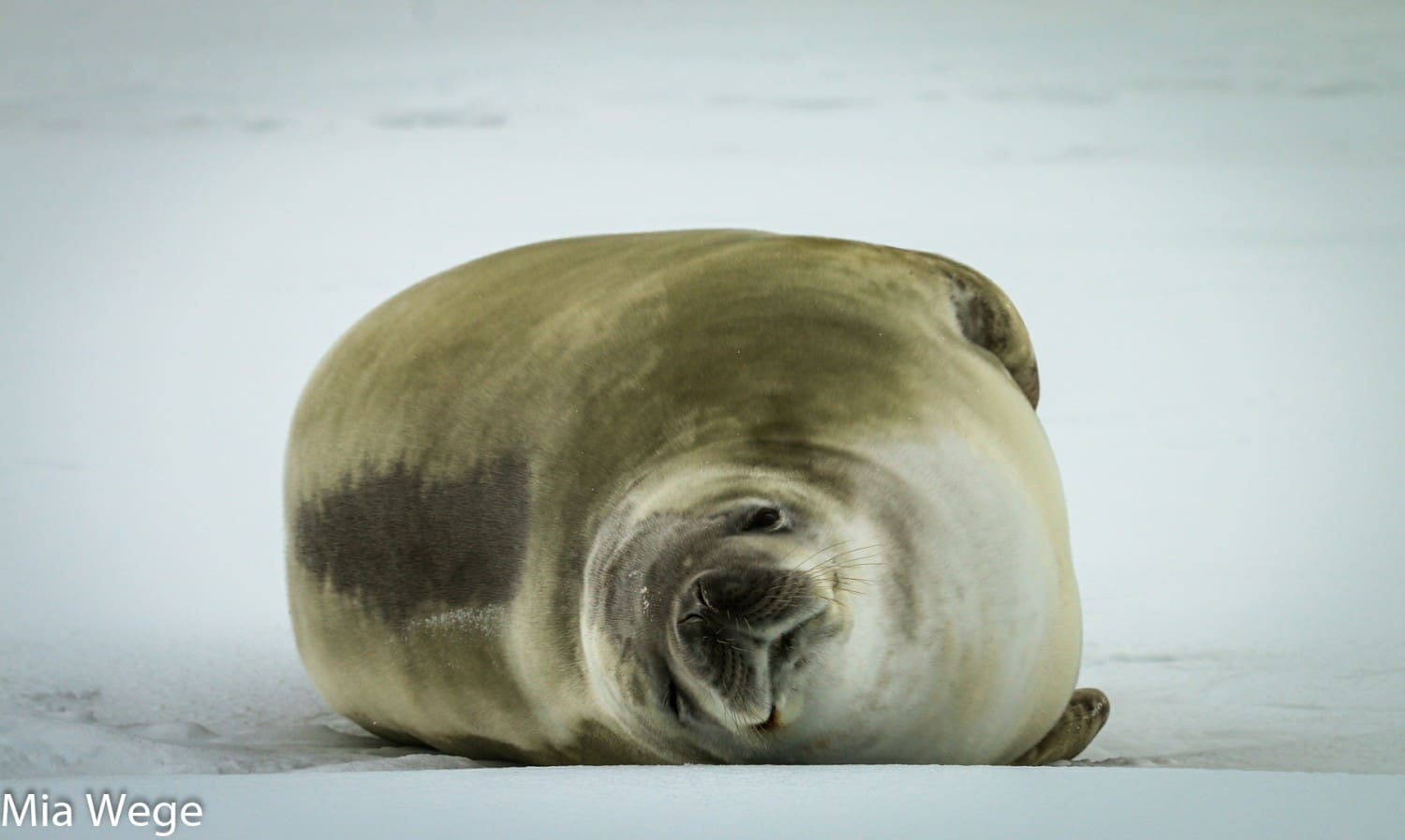 Crabeater seals
Crabeater seals